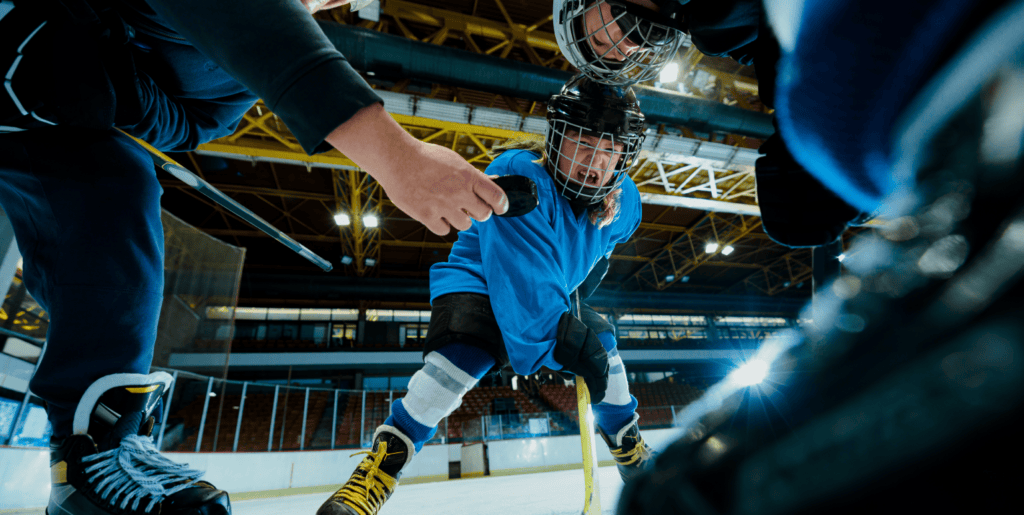PCA Resource zone
Concussion Fact Sheet for Athletes and Coaches, by Stanford Brain Performance Center

What is a Concussion?
A concussion is a type of traumatic brain injury (TBI) caused by a bump, blow, or jolt to the head or by a hit to the body that causes the head and brain to move quickly back and forth. Concussion typically results in the onset of short-lived impairments of neurological function that resolve spontaneously.
Recognizing and Concussion
An Athlete Who…
- Appears dazed or stunned following impact
- Forgets or is confused about an assignment, position, game, score, or opponent
- Moves clumsily
- Answers questions slowly
- Loses consciousness (even briefly)
- Shows mood, behavior, or personality changes
Symptoms of…
- Headache or “pressure” in head
- Nausea or vomiting
- Balance problems, dizziness, or double or blurry vision
- Bothered by light or noise
- Feeling sluggish, hazy, foggy, or groggy
- Confusion, or concentration or memory problems
- Just not “feeling right”, or “feeling down”
How to Handle a Suspected Concussion
- Remove the athlete from play until cleared by a healthcare provider
- Do not try to judge the severity of the injury yourself
- Record events related to the injury, loss of consciousness, memory loss, seizures: and number of previous concussions to help the healthcare provider
- Inform the athlete’s caregiver and coach about a possible concussion right away
Return to Play Progression
- Gradual return to physical and cognitive activity after 2-3 days of rest.
- No contact sports or risky activity until cleared for return by a physician with expertise in sport-related concussion
How to Keep Athletes Safe
- Talk about the importance of reporting
- Create a culture of safety on the team
- Keep up-to-date on concussion information
- Keep emergency contact information handy
Exercise – Sleep – Nutrition
- Early cardio exercise (usually stationary bike or brisk walking/jogging) to support recovery for at least 20 minutes, 4x per week beginning the first week of recovery
- Sleep is likely to be disrupted during concussion recovery – utilize sleep hygiene strategies
- Maintain proper hydration and nutrition to support recovery
Anxiety and Mood
- Track mood and identify triggers that worsen it
- Schedule tasks when you are most efficient and give yourself plenty of time
- Practice relaxation strategies (i.e. deep breathing, visual imagery, muscle relaxation) to reduce dayto-day stress and have a positive outlook
- Go to the nearest emergency department for any severe symtpoms
Risk Factors for More Severe Injury
- Drowsiness or inability to wake up fully
- Headache that persists or worsens
- Slurred speech, weakness, numbness, or decreased coordination
- Repeated vomiting or seizure
- Unusual behavior, increased confusion, restlessness, or agitation
- Loss of consciousness (passed out/knocked out), even if brief